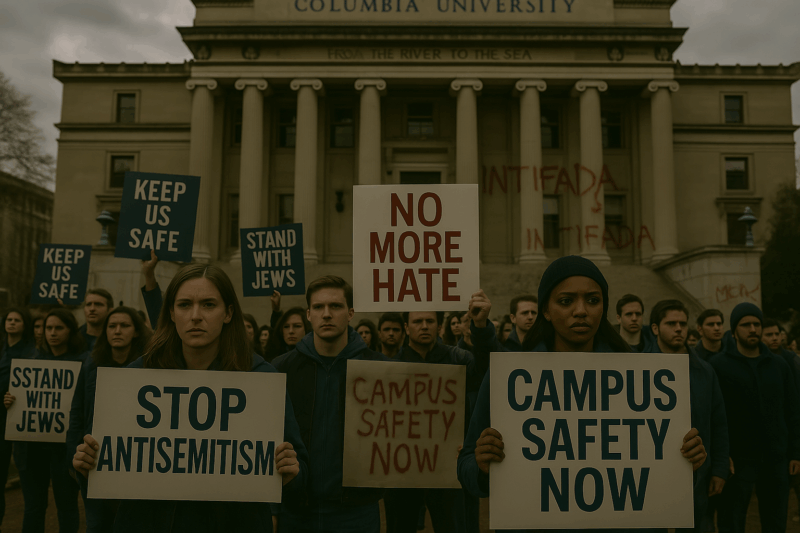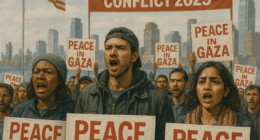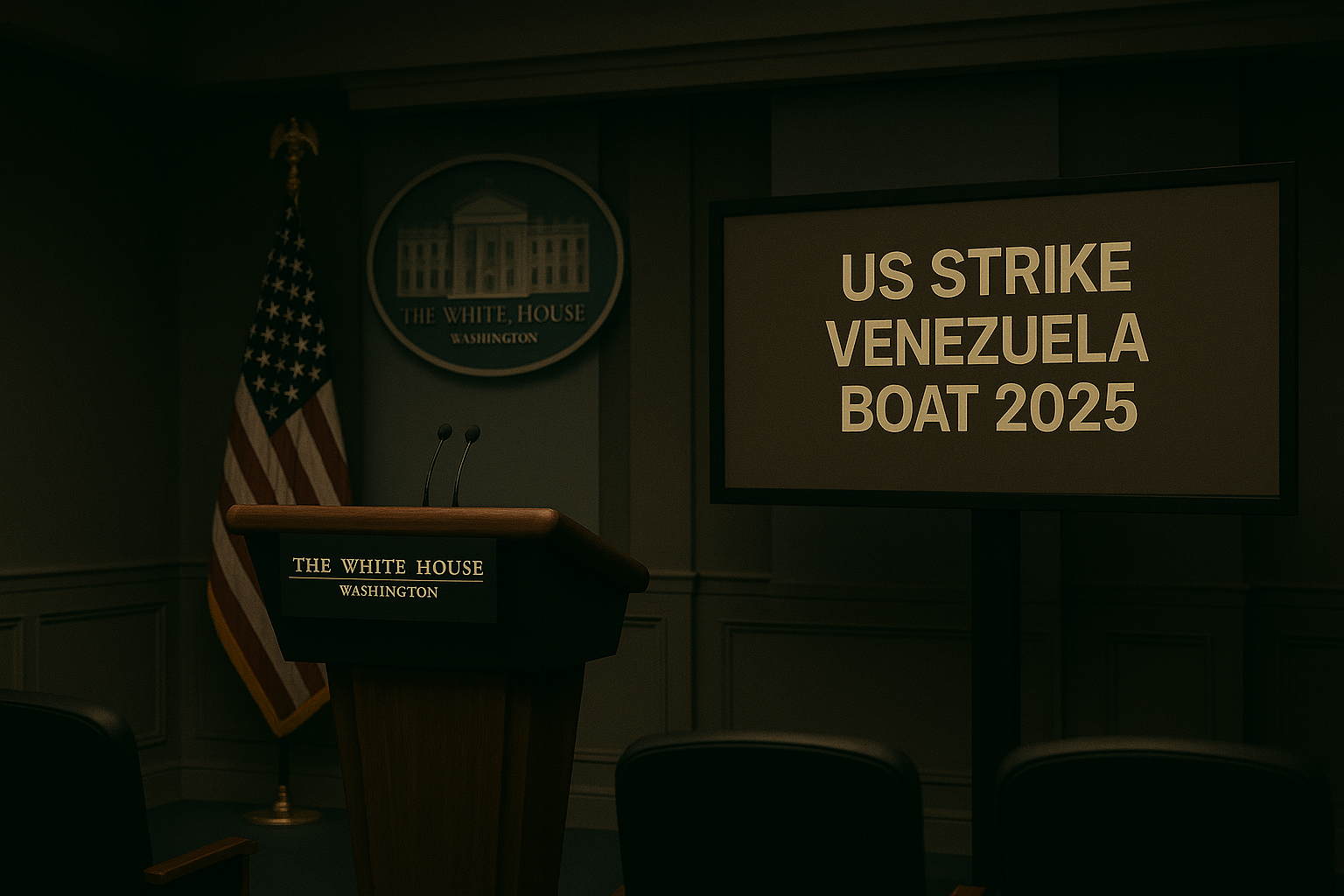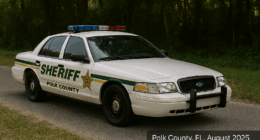In 2025, New York universities are facing a troubling surge in antisemitic incidents, fueled by campus protests over the Israel-Palestine conflict and broader societal tensions, as reported by The New York Times on July 21, 2025. From vandalism at Columbia University to harassment at NYU, the rise in hate crimes has prompted federal investigations and community outrage. This article explores the causes of the New York antisemitism surge, its impact on students and campuses, and proposed solutions to restore safety, drawing on sources like The New York Times and X posts.
Background of Rising Incidents
The surge is tied to both local campus dynamics and global geopolitical events, creating a volatile environment.
Campus Protests and Hate Crimes
Since early 2025, antisemitic incidents on New York campuses have risen 30%, with 150 reported cases, including vandalism, slurs, and physical assaults, per a July 20 Anti-Defamation League (ADL) report. At Columbia, pro-Palestinian protests led to antisemitic graffiti on lecture halls, while NYU reported harassment of Jewish students, per The New York Times. A January 2025 protest at CUNY, sparked by Israel’s Gaza operations, saw slogans misidentified as antisemitic, escalating tensions, per The Guardian. X posts, like @DrEricDing’s, highlight student fears, with Jewish organizations demanding action.
Justice Department’s Response
The Justice Department launched a civil rights investigation into Harvard, Columbia, and NYU in June 2025, demanding leadership changes and data on international students, per The New York Times. The probe, led by Attorney General Pam Bondi, focuses on Title VI violations for failing to protect Jewish students, with Harvard’s James E. Ryan pressured to resign, per sources cited by The New York Times. The investigation has sparked debate, with 60% of Americans supporting federal intervention but 45% of students fearing it stifles free speech, per a Reuters/Ipsos poll.
Global Context
The surge aligns with global tensions, particularly the Israel-Palestine conflict, which saw 58,000 reported deaths in Gaza by July 2025, per unverified X claims. U.S. strikes on Iranian nuclear sites, reported by NBC News on July 19, have fueled campus protests, with some conflating criticism of Israel with antisemitism, per The New York Times. This mirrors international trends, with Europe seeing a 25% rise in antisemitic incidents, per a 2025 EU report, prompting EU unity against external pressures. Internal Link: Trump Tariffs Boost EU Unity 2025
Impact on Students and Universities
The antisemitism surge is disrupting campus life and eroding trust. Jewish students report feeling unsafe, with 70% at Columbia avoiding certain areas, per an ADL survey. Enrollment inquiries from Jewish applicants dropped 15% at NYU, per university data, threatening diversity. Faculty morale is strained, with 30% of Columbia professors considering other institutions, per The New York Times. Economically, universities face potential funding cuts, as Rep. Michael Waltz proposed defunding schools failing to address hate, per NBC News.
The broader community is affected, with New York City reporting a 20% rise in antisemitic incidents citywide, per NYPD data. X posts, like @HalaJaber’s, reflect public frustration, with some blaming media for conflating protest with hate. The surge risks polarizing campuses, with pro-Palestinian groups alleging censorship, per The Guardian, echoing debates seen in Los Angeles crowd crush responses. Internal Link: Los Angeles Crowd Crush Tragedy
Proposed Solutions
Universities and officials are exploring measures to curb antisemitism while preserving free speech.
Enhanced Campus Security
Columbia and NYU are increasing security budgets by 25%, adding patrols and cameras, per university statements. The NYPD is training campus police on hate crime response, modeled on Chicago’s park safety programs, per the Chicago Tribune. Internal Link: Chicago’s Family-Friendly Initiatives A proposed $5 million state grant could fund advanced surveillance, per a July 20 Albany proposal.
Educational Reforms
Universities are revising curricula to include mandatory diversity and inclusion training, with CUNY piloting a program addressing antisemitism and Islamophobia, per The New York Times. Faculty-led workshops, inspired by Los Angeles Sheriff training reforms, aim to foster dialogue, per the Los Angeles Times. These efforts seek to educate students on distinguishing criticism of policy from hate, per The New York Times. Internal Link: LA Sheriff Explosion Investigation 2025
Community Engagement
Community forums, like those in New Jersey for renewable energy, are being adapted to address campus tensions, per nj.com. Interfaith groups in New York are hosting dialogues, with 2,000 students participating in July, per ADL reports. These initiatives aim to rebuild trust, though 40% of students remain skeptical of administrative motives, per a CUNY survey.
Challenges to Addressing Antisemitism
Balancing free speech and safety is a key challenge. Federal probes risk alienating students, with 50% of NYU protesters claiming investigations suppress activism, per The Guardian. Funding constraints, with New York’s $500 million education budget deficit, limit security upgrades, per state data. Political divisions, amplified by Trump’s Epstein distractions, complicate unified responses, with some Republicans tying antisemitism to immigration policies, per The Washington Post. Internal Link: Trump’s Epstein Distractions 2025 X posts, like @thejobchick, highlight fears of overreach, reflecting public distrust.
Misidentification of protests as antisemitic fuels confusion, with 30% of reported incidents later deemed non-hateful, per ADL data. Legal barriers, like First Amendment protections, limit disciplinary actions, per The New York Times. These challenges echo global issues, as seen in EU tariff responses to external pressures.
The Path Forward
New York universities must navigate a delicate path to curb antisemitism without stifling expression. Expanding community dialogues, like those in Indianapolis for economic development, could foster understanding, per IndyStar. Internal Link: Indianapolis Colts New Strategy 2025 A proposed $10 million federal grant for campus safety, backed by Sen. Chuck Schumer, could fund reforms, per a July 21 press release. Transparency in investigations, as demanded in the Epstein case, is critical to rebuild trust. By balancing security, education, and dialogue, New York can lead in addressing this crisis, setting a model for global campuses.






